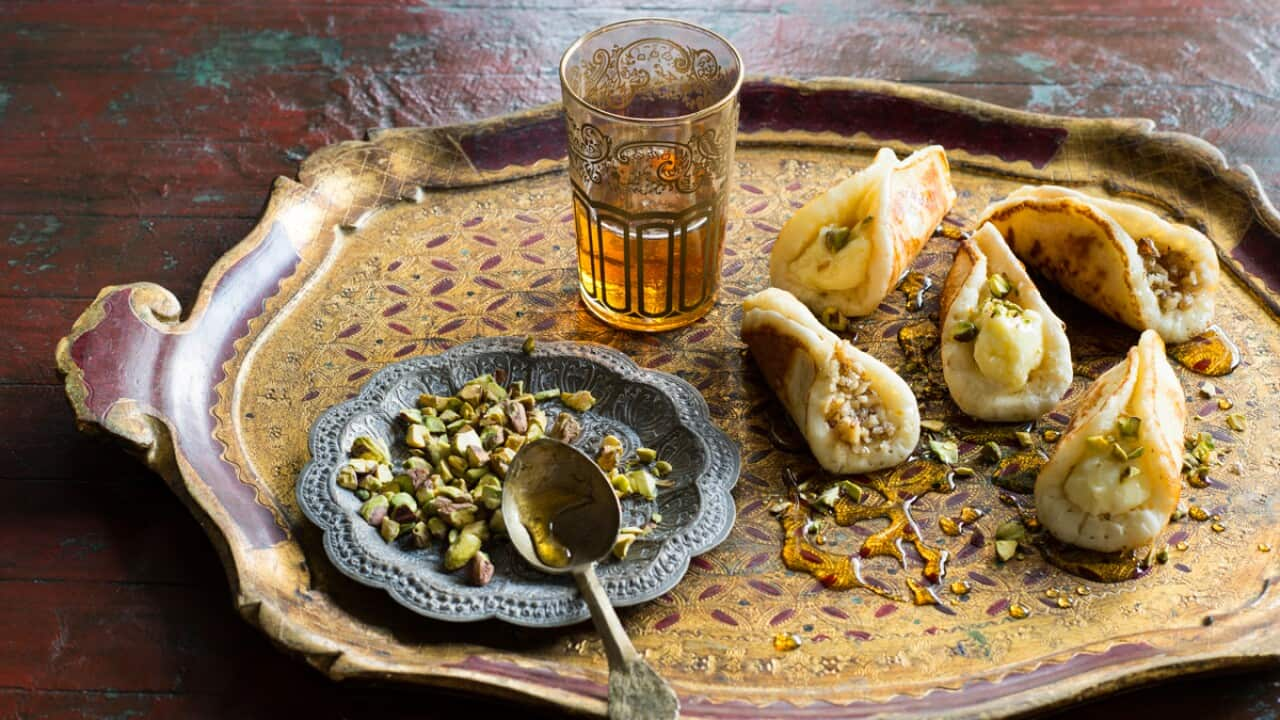Origins
Just a drop or two of rosewater imparts the heady, floral aroma of exotic places to a range of dishes, both sweet and savoury. Made by distilling rose petals with steam, rosewater was invented in the Middle Ages by chemists of the Islamic world, soon becoming the hallmark of the cuisines of the Middle East, North Africa and North India. But it has also long been used in the West: before vanilla became widely available in the early 19th century, it was an important ingredient in many desserts and pastries enjoyed in Europe and the New World.
The traditional way of distilling rosewater can still be seen in practice in Oman, which boasts one of the best and most coveted rosewaters in the world. In the cool Jebel Akhdar mountains, where the pink Rosa Damascena is grown, petals are picked in the early morning before their aroma fades. They are then simmered in water in vase-shaped clay pots placed inside a dahgan, or oven, which is traditionally wood-fired. The steam is collected and poured into clear glass bottles. This distinctive amber-coloured rosewater carries not only the fragrance of roses but the slight aroma of wood smoke.

Rosewater is most closely associated with Middle Eastern sweets and drinks, and is, of course, the hero of chewy, aromatic Turkish Delight (lokum). It gives baklava, nougat, raahat and an endless variety of Persian treats their special character. It also works well in some savoury dishes: think Iranian or Moroccan lamb stews and pilafs, which might include apricots or dried fruits. Cumin and coriander combine nicely with rosewater in a classic Moroccan carrot salad.
Use rosewater in ...
desserts and sweets including baklava, rice pudding, panna cotta, jelly, fresh berries or grilled or fresh peaches. Add a few drops to whipped cream, iced tea or lemonade. Try it in a lamb tagine or any dish that matches meat with fruit. In the bottle, rosewater has a full, rounded fragrance; when heated in cooking the aroma is dulled but a warm, muted flavour remains. The trick is to add it very carefully, drop by drop, as too much can make food taste and smell like grandma’s perfumed drawer liners! Once opened, store rosewater in the refrigerator.

Rosewater goes with ...
vanilla, cinnamon, cardamom, saffron, milk, cream, ice-cream, yoghurt, honey, pastry, chocolate, almonds, pistachios, hazelnuts, berries, peaches, plums, figs, oranges, apricots, lamb, dates, sultanas, rice.
For more rosewater recipes, head here.
SBS Food is a 24/7 foodie channel for all Australians, with a focus on simple, authentic and everyday food inspiration from cultures everywhere. NSW stream only. Read more about SBS Food
Have a story or comment? Contact Us

